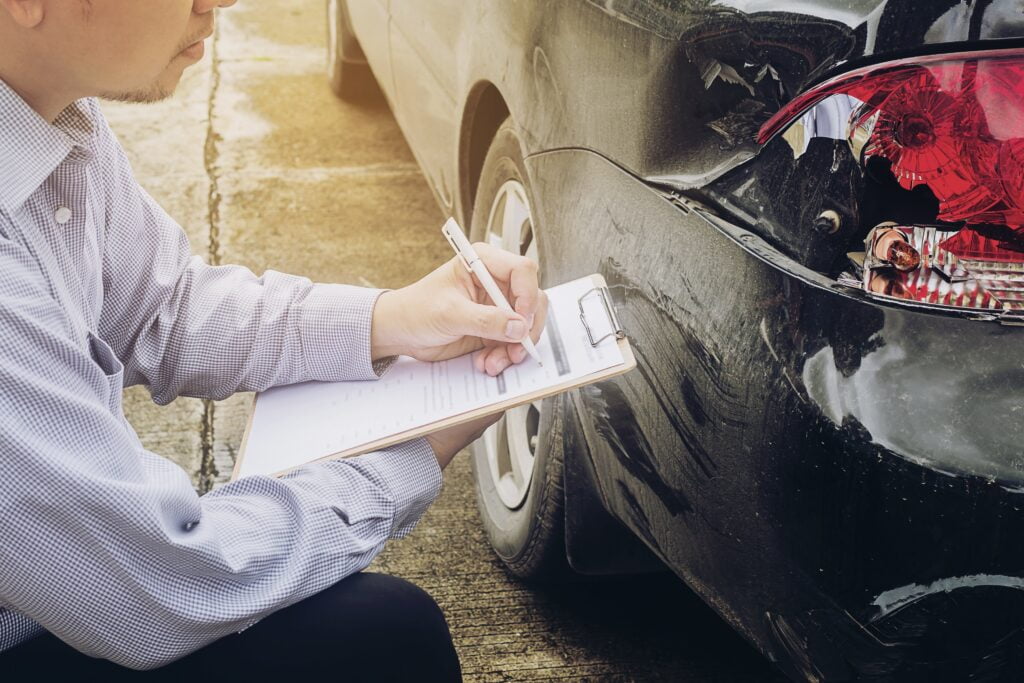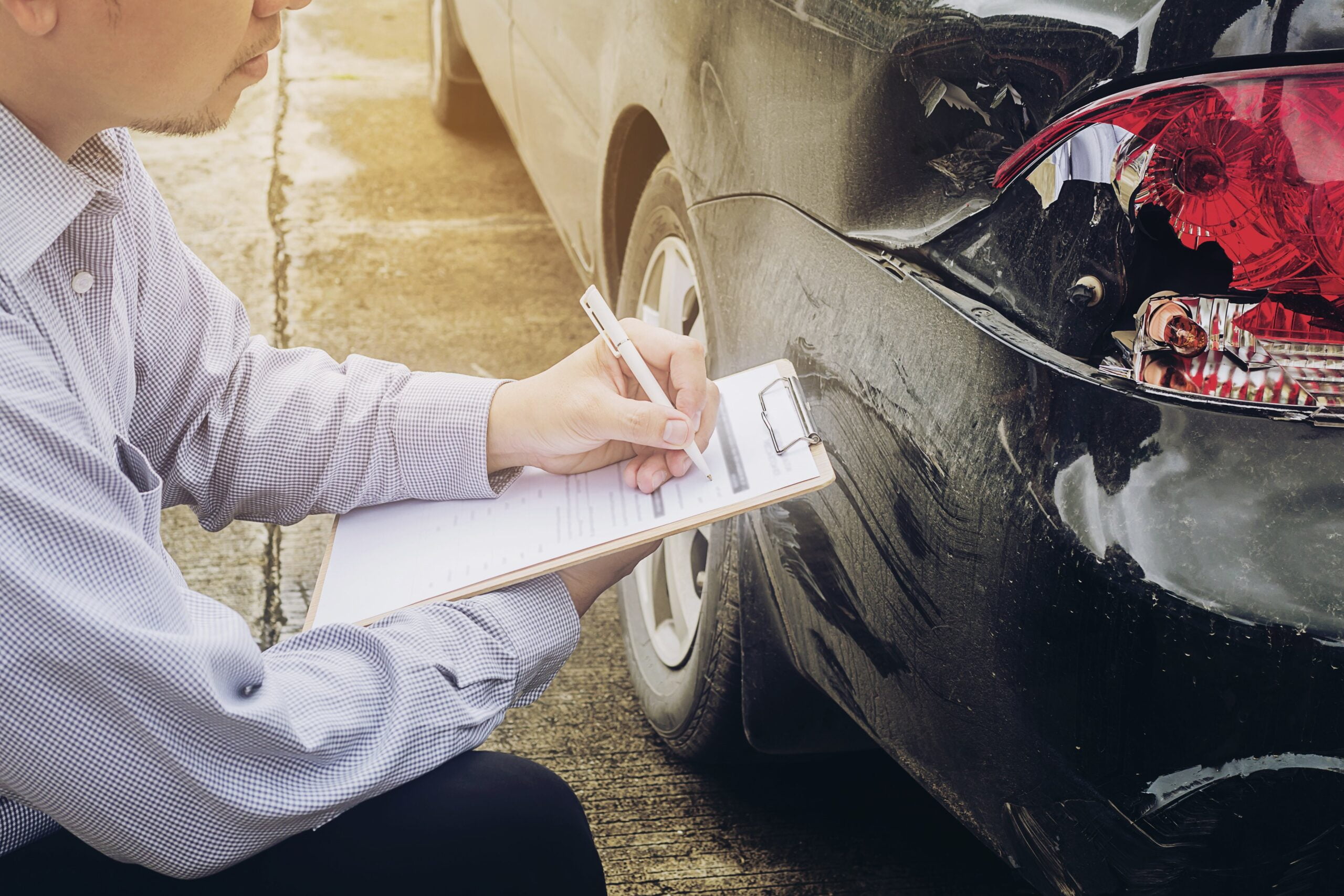Drive Protected: Understanding Car Insurance Coverage

Introduction
1. Introduction to Car Insurance: Understanding the Basics of Protecting Your Vehicle
Hello there! Have you ever heard of car insurance? It’s like a safety net for your vehicle that helps protect you from unexpected costs if something goes wrong. In this article, we’ll dive into the world of car insurance, explaining what it is, why it’s important, and how it works in a way that’s easy to understand for everyone.
2. What is Car Insurance?
Definition: Car insurance is a contract between you and an insurance company that protects you financially in case of an accident, theft, or other damages to your vehicle. You pay a small amount of money, called a premium, to the insurance company regularly, and in return, they agree to cover certain costs if something happens to your car.
Why It’s Important: Car insurance is essential because it helps you avoid paying large sums of money out of pocket if you’re involved in an accident or your car is damaged or stolen. It provides peace of mind knowing that you’re financially protected in case of an unexpected event.
3. Types of Car Insurance Coverage
Liability Coverage:
What It Covers: Liability coverage helps pay for damages to other people’s property or injuries to other people in an accident where you’re at fault.
Example Scenario: If you accidentally hit another car and it’s your fault, liability coverage would help pay for the repairs to the other car and any medical bills for the people injured in the accident.
Collision Coverage:
What It Covers: Collision coverage helps pay for damages to your car if you’re involved in a collision with another vehicle or object, regardless of who is at fault.
Example Scenario: If you crash into a tree or another car, collision coverage would help cover the costs of repairing your car.
Comprehensive Coverage:
What It Covers: Comprehensive coverage helps pay for damages to your car caused by things other than collisions, such as theft, vandalism, or natural disasters.
Example Scenario: If your car is stolen or damaged in a hailstorm, comprehensive coverage would help cover the costs of repairing or replacing your car.
4. Understanding Deductibles
Definition: A deductible is the amount of money you agree to pay out of pocket before your insurance coverage kicks in. For example, if you have a $500 deductible and your car needs $1,000 worth of repairs, you would pay $500, and your insurance would cover the remaining $500.
Choosing a Deductible: When selecting car insurance, you’ll have the option to choose a deductible amount. A higher deductible typically means lower premiums, but it also means you’ll have to pay more out of pocket if you need to make a claim.
5. How Car Insurance Works
Filing a Claim: If something happens to your car, like an accident or theft, you’ll need to file a claim with your insurance company. You’ll provide them with details about what happened, and they’ll assess the damage and determine how much they’ll cover.
Premiums: Your insurance premium is the amount of money you pay to the insurance company regularly for coverage. Premiums can vary based on factors like your driving record, the type of car you drive, where you live, and the coverage options you choose.
Legal Requirements for Car Insurance
1. Understanding Car Insurance: Legal Requirements
Car insurance is like a safety net that helps protect you and others in case of accidents on the road. But did you know that there are legal requirements for having car insurance? In this article, we’ll explore the legal requirements for car insurance and why they’re important for everyone who drives.
2. What is Car Insurance?
Car insurance is a type of financial protection that helps cover the costs of damage or injuries resulting from car accidents. It’s like a safety cushion that helps soften the blow if something goes wrong while you’re driving. Car insurance can cover things like repairs to your car, medical bills for injuries, and even legal expenses if you’re sued after an accident.
3. Why Do We Need Car Insurance?
Car insurance is essential for several reasons. First, it’s required by law in most places. This means that if you want to drive a car, you need to have car insurance to legally operate it on the road. Secondly, car insurance provides financial protection for you and others in case of accidents. Without insurance, you could be held personally responsible for paying for damages and injuries out of your own pocket, which could be very expensive and potentially ruinous.
4. Types of Car Insurance Coverage
There are different types of car insurance coverage, but the most basic and essential type is liability insurance. Liability insurance helps cover the costs of damage or injuries to other people or their property if you’re at fault in an accident. Also to liability insurance, you can also get coverage for your own car with collision and comprehensive insurance, as well as coverage for medical expenses with personal injury protection (PIP) or medical payments coverage.
5. Legal Requirements for Car Insurance
Now let’s talk about the legal requirements for car insurance. The specific requirements vary depending on where you live, but in most places, you’re required to have a least amount of liability insurance coverage. This means that you need to have enough insurance to cover the costs of damage or injuries to others if you’re at fault in an accident.
6. Least Coverage Limits
The smallest coverage limits for car insurance are typically expressed as three numbers, such as 25/50/10. The first number represents the largest amount of coverage for bodily injury per person, the second number represents the most amount of coverage for bodily injury per accident, and the third number represents the most amount of coverage for property damage per accident. These limits vary by state, so it’s essential to check the requirements in your area.
7. Consequences of Driving Without Insurance
Driving without car insurance can have serious consequences. If you’re caught driving without insurance, you could face fines, license suspension, or even legal consequences. Besides, if you’re involved in an accident without insurance, you could be held personally responsible for paying for damages and injuries, which could be financially devastating.
8. Obtaining Car Insurance
Getting car insurance is relatively easy. You can buy a policy from an insurance company either online or in person. When shopping for car insurance, it’s essential to compare quotes from different companies to find the best coverage at the most affordable price. You’ll need to provide information about yourself, your car, and your driving history to get a quote.
Factors Affecting Car Insurance Rates
1. Understanding Car Insurance Rates: What Factors Influence How Much You Pay
Have you ever wondered why some people pay more for car insurance than others? It’s not just random – there are several factors that insurance companies consider when determining how much to charge for coverage. In this article, we’ll explore the various factors that can affect your car insurance rates and help you understand why you might be paying more or less than someone else.
2. Your Driving Record:
Driving History: Your driving record is one of the most significant factors that insurance companies consider when setting your rates. If you have a history of accidents or traffic violations, you may be considered a higher risk and charged more for coverage.
Accident History: If you’ve been involved in accidents in the past, especially if you were at fault, insurance companies may see you as more likely to be involved in future accidents. As a result, they may charge you higher rates for coverage.
3. Your Age and Gender:
Age: Younger drivers, especially teenagers, tend to pay higher insurance rates because they are considered riskier to insure. As drivers gain more experience and prove safe driving habits, their rates may decrease over time.
Gender: Statistics show that male drivers are more likely to be involved in accidents than female drivers, which is why insurance rates for males may be slightly higher on average.
4. Your Vehicle:
Make and Model: The type of car you drive can also impact your insurance rates. Generally, more expensive or high-performance vehicles cost more to insure because they may be more expensive to repair or replace in the event of an accident.
Safety Features: Vehicles equipped with advanced safety features, such as anti-lock brakes, airbags, and collision avoidance systems, may qualify for lower insurance rates because they are less likely to be involved in accidents.
5. Where You Live:
Location: Your geographic location can affect your insurance rates due to factors such as population density, crime rates, and the frequency of accidents in your area. Urban areas with higher traffic volumes and crime rates tend to have higher insurance rates.
Climate: Regions prone to extreme weather conditions, such as hurricanes or snowstorms, may also experience higher insurance rates due to the increased risk of vehicle damage and accidents.
6. Your Credit Score:
Credit History: In some states, insurance companies are allowed to consider your credit score when determining your insurance rates. Drivers with higher credit scores may be eligible for lower rates, as they are seen as more financially responsible and less likely to file claims.
Financial Responsibility: Insurance companies believe that drivers with good credit scores are more likely to pay their premiums on time and maintain their coverage, reducing the risk of financial losses for the insurer
Car Insurance Coverage
1. Understanding Car Insurance Coverage: A Beginner’s Guide to Protecting Your Ride
Hey there! Have you ever wondered what car insurance is all about? It might seem complicated, but don’t worry! In this article, we’re going to break it down for you in a way that’s easy to understand. We’ll talk about the different types of coverage, what they mean, and why they’re essential for keeping you and your car safe on the road.
2. What is Car Insurance Coverage?
Breaking It Down: Car insurance coverage is like a shield that protects you and your vehicle from financial loss if something unexpected happens. When you have car insurance, you pay a little bit of money each month to an insurance company, and in return, they promise to help cover the costs if your car gets damaged, stolen, or if you’re involved in an accident.
Why You Need It: Car insurance coverage is essential because accidents happen, and they can be expensive! Without insurance, you could end up having to pay thousands of dollars out of pocket to repair your car or cover medical bills if you’re injured in an accident. Car insurance gives you peace of mind knowing that you’re protected if the unexpected occurs.
3. Types of Car Insurance Coverage
Liability Coverage:
What It Does: Liability coverage helps pay for damages or injuries to other people or their property if you’re at fault in an accident.
Example: Let’s say you accidentally rear-end someone at a stoplight. Your liability coverage would help cover the cost of repairing their car and any medical bills if they were injured.
Collision Coverage:
What It Does: Collision coverage helps pay for damages to your car if you’re involved in a collision, regardless of who is at fault.
Example: If you crash into a tree or another car, collision coverage would help cover the costs of repairing your car.
Comprehensive Coverage:
What It Does: Comprehensive coverage helps pay for damages to your car caused by things other than collisions, like theft, vandalism, or natural disasters.
Example: If your car is stolen or damaged in a hailstorm, comprehensive coverage would help cover the costs of repairing or replacing your car.
4. Understanding Deductibles
What is a Deductible?: A deductible is the amount of money you agree to pay out of pocket before your insurance coverage kicks in.
Choosing a Deductible: When you buy car insurance, you’ll have the option to choose a deductible amount. A higher deductible means lower monthly payments, but you’ll have to pay more out of pocket if you need to make a claim.
5. How Car Insurance Coverage Works
Filing a Claim: If something happens to your car, like an accident or theft, you’ll need to file a claim with your insurance company. They’ll review the claim and, if approved, help cover the costs of repairs or other expenses.
Paying Your Premiums: Your insurance premium is the amount of money you pay to the insurance company regularly for coverage. You’ll need to pay your premium on time to keep your coverage active.
Making Car Insurance Claims
1. Making Car Insurance Claims: A Step-by-Step Guide
Car accidents can be stressful and overwhelming, but knowing how to make a car insurance claim can help ease some of the burden. In this article, we’ll walk through the process of making car insurance claims, step by step, so you know what to do if you’re ever involved in an accident.
2. Assess the Situation
The first step in making a car insurance claim is to assess the situation. Make sure everyone involved in the accident is safe and call emergency services if necessary. If it’s safe to do so, move your vehicle out of traffic to prevent further accidents.
3. Exchange Information
Next, exchange information with the other parties involved in the accident. This includes their name, contact information, insurance information, and vehicle registration details. Be sure to also gather contact information from any witnesses to the accident.
4. Document the Scene
Documenting the scene of the accident is essential for making a successful insurance claim. Take photos of the damage to all vehicles involved, as well as any injuries sustained. Note the location, time, and weather conditions at the time of the accident.
5. Notify Your Insurance Company
Once you’ve assessed the situation and gathered all necessary information, it’s time to notify your insurance company of the accident. Most insurance companies have a 24/7 claims hotline that you can call to report accidents. Be prepared to provide details about the accident, including the date, time, location, and a description of what happened.
6. Provide Documentation
After you’ve reported the accident to your insurance company, they will likely ask you to provide documentation to support your claim. This may include photos of the damage, a copy of the police report, and any medical records if you were injured in the accident. Be sure to submit all requested documentation promptly to avoid delays in processing your claim.
7. Cooperate with the Claims Adjuster
Once your claim is submitted, an insurance claims adjuster will be assigned to investigate the accident and determine the extent of the damages. Be cooperative and responsive to any requests for information or more documentation from the claims adjuster. They may need to inspect your vehicle or speak with witnesses to gather more information about the accident.
8. Review Your Coverage
While your insurance company is processing your claim, take some time to review your insurance coverage. Familiarize yourself with your policy limits, deductibles, and any exclusions that may apply to your claim. This will help you understand what to expect in terms of coverage and reimbursement for damages.
9. Receive Compensation
Once the claims adjuster has completed their investigation, your insurance company will provide you with a settlement offer. Review the offer carefully to ensure that it adequately covers the damages sustained in the accident. If you agree with the settlement offer, you can accept it and receive compensation for your losses.
10. Seek Legal Advice if Necessary
If you’re not satisfied with the settlement offer from your insurance company, or if you encounter any difficulties in the claims process, it may be helpful to seek legal advice. An experienced attorney specializing in car insurance claims can provide guidance and representation to help you navigate the process and ensure that your rights are protected.
Conclusion
1. Wrapping Up: Understanding the Importance of Car Insurance
As we come to the end of our discussion on car insurance, let’s take a moment to reflect on the key points we’ve covered and why having car insurance is so important for drivers everywhere.
2. Protection Against Financial Loss:
Peace of Mind: Car insurance provides peace of mind knowing that you’re financially protected in case of an accident or other covered event. It helps you avoid significant financial losses that could otherwise result from repairing or replacing your vehicle, as well as covering medical expenses and liability claims.
Legal Need: In many places, having car insurance is a legal need. Driving without insurance can result in hefty fines, license suspension, and even legal consequences. By maintaining the required insurance coverage, you can avoid these penalties and drive legally on the road.
3. Safety Net for Unexpected Events:
Accidents Happen: No matter how careful a driver you are, accidents can still happen. Car insurance acts as a safety net, providing financial protection when the unexpected occurs. Whether it’s a minor fender bender or a major collision, knowing that you’re covered can help ease the stress and uncertainty of the situation.
Protection for Others: Car insurance not only protects you but also others who may be involved in an accident with you. Liability coverage helps cover the costs of damage or injuries sustained by other drivers, passengers, or pedestrians in an accident where you’re at fault.
4. Peace of Mind for Your Loved Ones:
Family Protection: Car insurance provides peace of mind not only for you but also for your loved ones. Knowing that you have adequate insurance coverage in place can help reassure your family members that they’ll be taken care of in the event of an accident or other covered event.
Financial Stability: Car accidents can have far-reaching financial consequences, affecting not only your immediate expenses but also your long-term financial stability. Car insurance helps protect your finances by covering the costs of repairs, medical bills, and other expenses associated with an accident.
Related Keywords:
Insurance premiums
Auto insurance
Vehicle coverage
Car protection
Healthy 2 Wealthy 4 Life – Welcome to holistic well-being Our blog covers Health, wealth, Food, Law and Insurance.Discover secrets to a robust body and mind, expert well-being advice, and Exercise’s transformative power.Whether you’re a fitness enthusiast or a beginner, our guides inspire fitness goals.Food matters explore delectable, nourishing recipes.Delve into Wealth for financial wisdom. Join us for a balanced l/







